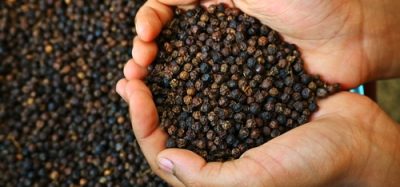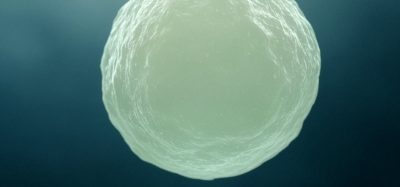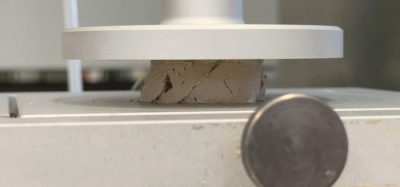Tuna fisheries: investing in a sustainable future
- Like
- Digg
- Del
- Tumblr
- VKontakte
- Buffer
- Love This
- Odnoklassniki
- Meneame
- Blogger
- Amazon
- Yahoo Mail
- Gmail
- AOL
- Newsvine
- HackerNews
- Evernote
- MySpace
- Mail.ru
- Viadeo
- Line
- Comments
- Yummly
- SMS
- Viber
- Telegram
- Subscribe
- Skype
- Facebook Messenger
- Kakao
- LiveJournal
- Yammer
- Edgar
- Fintel
- Mix
- Instapaper
- Copy Link
Posted: 11 February 2019 | Jenny Linford | No comments yet
The Basque Country is combining centuries of knowledge with the very latest technology to sustain its prized fishing industry. Jenny Linford reports.
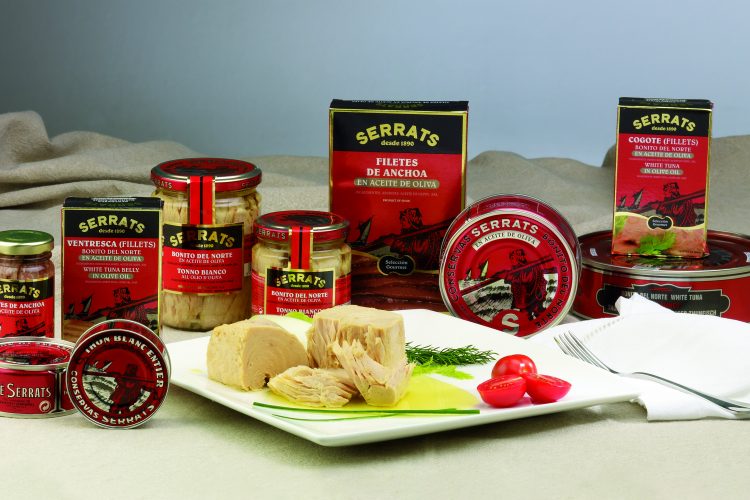

A seagoing, boat-building people, the Basque community have long looked to the Cantabrian sea as a valuable resource. Indeed, the first commercial whalers were the seventh- and eighth-century Basques and to this day commercial fishing for fish – including anchovies and tuna – forms an important part of the Spanish Basque Country economy in its coastal regions.
While traditional fishing methods – trolling (fishing with baited hooks) and pole and line fishing – are still used, a visit to the region reveals the extent to which, in the 21st century, science and technology are now playing their part in the local fishing industry. Central to this process is AZTI, a technology centre and research institute established in 198I by the Basque Government and now run as a private foundation. Initially founded as a specialist in fisheries management, over the decades AZTI’s work has expanded beyond this to encompass the world of food with its staff now numbering over 240 people. ‘Transforming science into business’ is one of AZTI’s straplines and its work for clients is wide-ranging. In food research, for example, advertised areas of expertise on offer include state-of-the-art food preservation processes and technology, production efficiency, sensory analysis, new health food products development and trichloroanisole (TCA) analysis and atmospheric capture in wineries.
Given its origins, however, AZTI’s knowledge of fisheries fundamentally underpins its work. “AZTI is orientated specifically to the sea and the health of the sea,” explains AZTI’s Scientific Director Xabier Irigoien. “We try and deal with the whole chain, starting with the environment and ending with the consumer. One of our catchphrases is ‘from the ecosystem to the plate.’” The issues of sustainability and traceability are important ones in the food-supply chain and these are both areas in which AZTI does a lot of work, notably with regard to tuna fish.
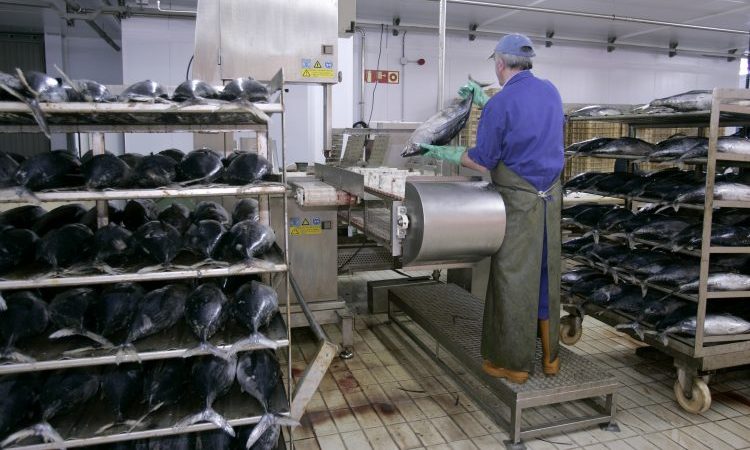

Manual deheading machinery is used. CREDIT: Serrats. Artisanal Elaboration of White Tuna (Albacore) Preserves.
In order to try and sustainably manage tuna populations around the world, quotas are set for various tuna fisheries, explains AZTI’s Head of Research Josu Santiago, who has been at AZTI since it was first established and possesses considerable experience in this field. Setting these quotas is far from straightforward. They require negotiating agreement among interested parties through international organisations, such as the International Commission for the Conservation of Atlantic Tuna (ICCAT), to which AZTI sends its scientists (including Santiago) to contribute their advice and data to working committees. “Ten to fifteen years ago, science didn’t matter in the decision-making process,” says Santiago. He cites an example from 2006 where the scientific advice to restrict the catch of Atlantic and Mediterranean tuna to 15,000 tonnes was ignored, with ICCAT instead setting double that amount as its quota. “Fortunately, now that has changed; they do listen to scientific advice.”
Ten to fifteen years ago, science didn’t matter in the decision-making process. Fortunately that has now changed, they do listen to scientific advice
AZTI has also developed technology specifically to be used by the fishing industry in a number of ways. An example that Irigoien gives is the development of FLBEIA Software, a simulation toolbox. “This allows fisheries to simulate management strategies and to see – before these are actually implemented – what the impacts for the fish population, the fishery and the business side would be,” explains Irigoien. “We developed it 25 years ago and demand for it is increasing.” Another modelling tool developed by AZTI is Bonicho, designed to “help the fishermen choose where to go to find albacore tuna. We use oceanographic models and satellite information to suggest where the fish are likely to be. It’s aimed at reducing costs for the fishermen. They have quotas so they can’t catch more, but if you reduce the travel they spend searching for the fish, then you reduce their costs and improve their profits.”
Traceability and preventing food fraud are other areas where AZTI has particular expertise. “Here in the Basque Country, for example, albacore is the tuna we prefer, so it’s very tempting for the unscrupulous to put other, cheaper species in the can and pass it off as albacore,” observes Irigoien. In response, AZTI uses DNA testing to verify the species of fish and ensure that any fraud is halted in its tracks. Genetic PCR-sequencing allows for unequivocal species identification, not only on fresh and frozen fish, but also on processed products. Parties interested in using these tests range from organisations working to promote a good marine environment to the canning industry and food brands. The benefits for companies include authentication, obtaining quality standards that consumers expect and demand, and product differentiation. AZTI is also a lead partner with TellSpec, a UK-headquartered company, working on developing a food spectrometer with the aim of determining farmed fish from wild fish in order to help tackle food fraud in this area.
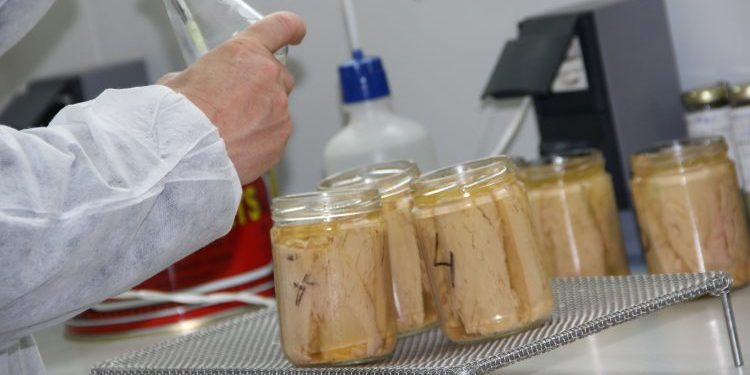

Quality control is a key part of the preserving process. CREDIT: Serrats. Artisanal Elaboration of White Tuna (Albacore) Preserves.
Given their work promoting sustainability in tuna fisheries, the fact that the local albacore fishery in the Bay of Biscay (where the fishermen use pole and line and so catch very little bycatch in the process) has been certified as sustainable by the Marine Stewardship Council (MSC) is a source of satisfaction to AZTI. “We have a very good relationship with the local fleet, developed over years,” says Irigoien, “there is a lot of trust now. They understand that we can help them with management, with technology. We meet with them several times a year, (and) ask them what their problems are.” Looking to the future, he explains that the institute is doing a lot of work “trying to improve management and efficiency”. One way which he considers offers scope to achieve these goals is through using international satellite tracking for vessels; “if you can reduce the travel time that makes for increased profitability.”
Basque region cemented as major tuna hub
May 2018 saw the launch of another AZTI idea – Bermeo Tuna World Capital (BTWC). BTWC is a public-private alliance, which works to promote the sustainable management of tuna by sharing knowledge and good practice internationally. The association brings together key players in the tuna value chain in the port of Bermeo, the Basque Country and around the world, including public institutions, such as the Basque Government, AZTI itself, Freezer Tuna Seiner Associations (ANABAC and OPAGAC) and several canneries. Given the pressures on tuna stocks around the world and the expected increase in world per capita fish consumption, the goal of sustainably managing tuna populations is one that all parties in BTWC feel is important. Bermeo, after which the association is named, is a major Basque Country fishing port; a place that encapsulates the importance of tuna fishing to the local economy. The Bermeo fleet comprises 50 freezer tuna seiners and 25 coastal vessels; the fleet’s catch comprises 10 percent of the world’s tropical tuna catch, generating 1.250 billion euros in the tuna value chain.
Today, the town of Bermeo is a canned food hub, served by the port, which supplies seasonally available fresh fish and contains useful industry resources such as refrigeration and freezer companies. Among Bermeo’s fish canning businesses is Serrats, a family-run, fish canning business founded in the town in 1890 by Jose Serrats, who migrated from Catalonia to the Basque Country lured by the potential of working with the plentiful fish stocks found in the Cantabrian Sea.
In a competitive canned fish market, Serrats’ emphasis is on the quality of its products and the artisanal aspect of its processing. The factory produces a million kilograms of tuna a year; “The biggest cannery can do in one week what I do in a year,” acknowledges Ignacio Serrats, the company’s Director, with a smile. Eighty per cent of the fish it processes is caught in the Cantabrian Sea.
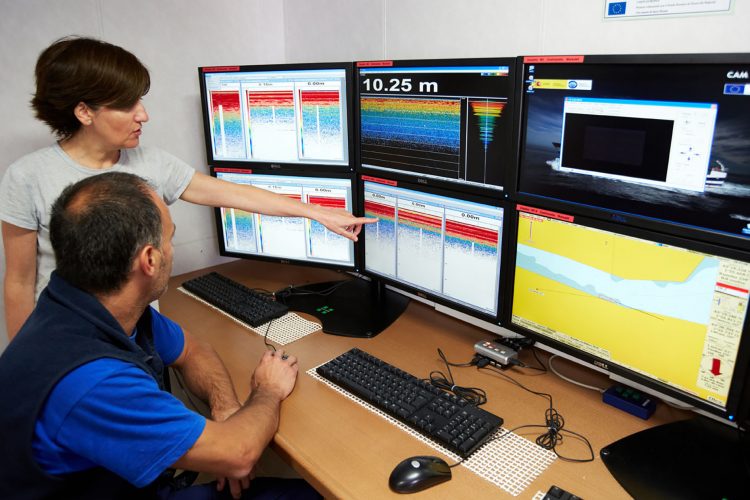

Acoustic technology is used to improve the prediction of the distribution of schools of tunas. CREDIT: AZTI
A tour of the factory to see the process up-close reveals the hard work and skill involved. Much of the work preparing, cutting and trimming the tuna is carried out in the traditional way; that is, by hand using a local workforce whose deftness reveals their experience. Freshly caught albacore tuna – each fish between 9-15kg – arrive at the factory (from the docks) where they are sorted by size and have their heads and guts removed by hand. The fish are cooked for three hours at a temperature of 98°C, cleaned and cooled. During the next stage, the fish is divided into pieces, cleaned again, placed in cans and jars, covered with olive oil, sealed and sterilised. The premium, fragile tuna cuts – namely the ventresca (the fatty tuna belly prized for its delicate texture) and cogote (the neck), which are sold separately at a high price – are cut out by hand and treated with care during the entire preserving process.
While proud of its heritage, Serrats has also always been a forward-looking business. It was the first local company to begin exporting canned fish to the United States in 1914 and the first cannery to introduce the use of glass jars for its bonito del norte. New technology plays its part in the factory, with the company having invested in an X-ray detector as well as a metal detector to check the contents of the cans and jars. Ignacio Serrats was a key player in the move to have the albacore fishery certified by the MSC, feeling strongly that this is an important, long-term matter for the local industry.
Serrats as a company is appreciative of the knowledge and skills offered by AZTI and proud to be a member of BTWC. “The association was created to boost Bermeo and the surrounding region as a standard bearer of sustainability; something we at Serrats are firmly committed to,” explains the company’s Export Manager Sara Asensi. “Its creation allows us to have a great chance to learn and keep learning, whether it’s in terms of new technologies, or through relationships or other opportunities.” She and her colleagues are optimistic that the association will bring economic opportunities: “On a business level, the fact that Bermeo’s name will be even better-known and recognised will help us in selling the products we make here.”
About the author
Jenny Linford is a freelance food writer, based in London. She is the author of several books on food and cooking, including The Missing Ingredient – an exploration of the role time plays in growing, making and cooking food – published by Penguin paperback in March 2019.
Issue
Related topics
Food Grade Lubricants, Natural, Processing, Quality analysis & quality control (QA/QC), Supply chain, Sustainability
Related organisations
AZTI, Bermeo Tuna World Capital (BTWC), International Commission for the Conservation of Atlantic Tuna (ICCAT), Marine Stewardship Council (MSC)





